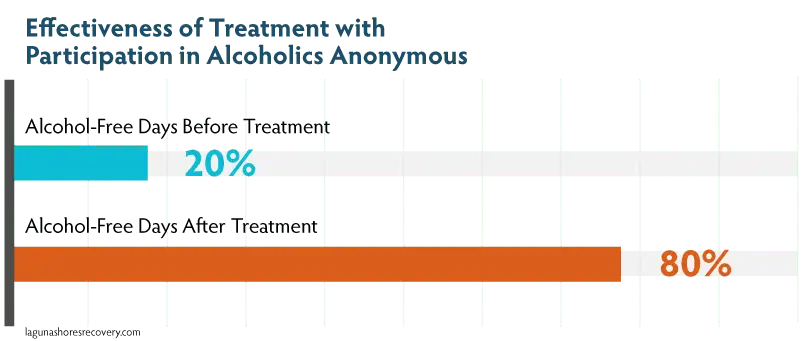12-Step Programs
What are the 12 Steps?
The 12 steps of Alcoholics Anonymous have been copyrighted in 1952, 1953, 1981, and 2016 by Alcoholics Anonymous World Services, Inc.2
Sometimes, a person will see the word “God” replaced with “Higher Power.” Also, a person may change the “We were powerless” statement to better reflect the substance or addiction they suffer from.
The 12 Steps
- We admitted we were powerless over alcohol–that our lives had become unmanageable.
- Came to believe that a Power greater than ourselves could restore our sanity.
- Made a decision to turn our will and our lives over to the care of God as we understood him.
- Made a searching and fearless moral inventory of ourselves.
- Admitted to God, to ourselves, and to another human being the exact nature of our wrongs.
- We’re entirely ready to have God remove all these defects of character.
- Humbly asked Him to remove our shortcomings.
- Made a list of all persons we had harmed, and became willing to make amends to them all.
- Made direct amends to such people wherever possible, except when to do so would injure them or others.
- Continued to take personal inventory and when we were wrong, promptly admitted it.
- Sought through prayer and meditation to improve our conscious contact with God as we understood Him, praying only for knowledge of His will for us and the power to carry that out.
- Having had a spiritual awakening as the result of these steps, we tried to carry this message to alcoholics, and to practice these principles in all of our affairs.

What Are Some Different Types of 12-Step Programs?
There are a number of groups that practice the 12-step program principles like Alcoholics Anonymous. Examples include:
- Cocaine Anonymous
- Co-Anon, a group for the friends and family of addicts
- Debtors Anonymous
- Gamblers Anonymous
- Heroin Anonymous
- Marijuana Anonymous
- Neurotics Anonymous
- Overeaters Anonymous
- Sexaholics Anonymous
- Survivors of Incest Anonymous
- Workaholics Anonymous
These are just a few examples of some of the many groups that utilize the 12 steps in recovery.
Be Brave. Get Help.
History of the 12-Step Program
A Small Beginning
The 12-step program has its beginnings in 1935, when two men who struggled with alcohol addiction from Akron, Ohio, got together to discuss their recovery.1 The men’s names were Bill W., who was a stockbroker in New York and Dr. Bob S, who was a doctor in Akron.
Both of these individuals had worked with a group called the Oxford Group who emphasized spiritual values in daily living. While the Oxford Group wasn’t an alcoholism recovery group, the group’s principles had inspired the Bill W. to get sober. When Bill spoke with Dr. Bob, Bill shared with him how treating his condition from a mind, body, and soul perspective helped him to quit alcohol for good.
Moving on to Help Others
The two men started to work with others admitted to Akron’s City Hospital who struggled with alcoholism.1 Working with another friend, named Ebby T., they were able to help others achieve sobriety.
These three men became the essential founding members of Alcoholics Anonymous, and started to spread their message throughout New York, Akron, and Cleveland.
After four years of efforts, the group had helped to produce more than 100 sober individuals in recovery from alcoholism.
Creating a Fellowship
In the group’s early beginnings, they were known as The Fellowship.1 In 1939, the Fellowship published its first textbook, which Bill wrote.
He called the textbook Alcoholics Anonymous.
Contained within its pages were details about the group’s approaches to sobriety, including the 12 steps to recover. The book was warmly embraced by many, and the group’s principles started to spread to greater notoriety.
Spreading the Message
The Fellowship’s numbers continued to increase over time. By 1941, the organization counted 6,000 members.1 By 1950, there were an estimated 100,000 recovering alcoholics who had participated in The Fellowships programs. That same year, Dr. Bob passed away.
Before that time, he had given a speech to The Fellowship’s first International Convention encouraging to keep the steps simple and to continue practicing the twelve traditions of Alcoholics Anonymous.
Anonymous Groups Today
Some years later, in 1955, the new board of trustees changed the name to Alcoholics Anonymous to reflect the now-popular book’s guiding principles.
Today, there are two million members of Alcoholics Anonymous worldwide, and an estimated 115,000 groups.5 According to Scientific American, half of all Alcoholics Anonymous groups in the world are in the United States.
The Higher Power Dynamic
What Do The Steps Mean by “Higher Power”?
Seven of the twelve steps make reference to a higher power or sometimes, depending on the book, will specifically mention God. In addition to the 12 steps, the Serenity Prayer, whose first lines are “God grant me the serenity to accept the things I cannot change” also has mention of a higher power. Therefore, it can be difficult for some people who do not identify as religious or who do not believe in God to participate in a twelve step program. Some may feel the words they are saying are disingenuous and have difficulty incorporating religion into their recovery.
According to an article in a 2018 edition of the journal Addiction, while spirituality and mention of a higher power play a role in Alcoholics Anonymous meetings, they are not usually the part of the meeting participants find most beneficial.4
Socialization and attention to changing thinking about drug or alcohol abuse was reported by the journal as the most effective aspects of 12 step programs.
How Do People That Are Not Religious Participate in 12-Step Groups?
A person does not have to be religious to participate in 12-step groups. However, if someone finds they cannot state or follow the 12 steps due to the mentions of a higher power, there are other alternatives.
According to the New York Times, across the country there are more than 150 groups who offer a non-religious Alcoholics Anonymous meeting. These organizations also hold an annual convention for their members and leaders.3
Sometimes, the organizations are called “secular” Alcoholics Anonymous or other groups. These groups may interpret portions of the 12 steps in different ways. For example, one group re-constructed step 2 to say “We needed strengths beyond our awareness and resources to restore us to sanity”.
One of the key tenets in any 12-step organization is a open environment and non-judgmental attitude. Ideally, 12-step programs offer an environment where a person can find, regardless of their spiritual beliefs, a place to get sober.
Do 12-Step Programs ``Work``?

In a large-scale clinical trial called Project MATCH, those who participated in 12-step groups were more likely to be in full remission a year after an initial rehabilitation stays than those who were not.
The researchers found that twelve-step group participation resulted in lower healthcare costs overall for participants.
The researchers found those with a lower addiction severity (such as those who had not been addicted for long duration), experienced the greatest benefits of 12-step participation due to the social support the group provided.
The researchers found that men reported benefiting most through their participation in Alcoholics Anonymous because it helped them cope with how to handle high-risk drinking situations in public. While women reported this benefit, they tended to experience it to a lesser degree.
The researchers concluded that “Even when compared to the theoretically driven state-of-the-art interventions, twelve-step facilitation tends to produce as good, or better, alcohol use outcomes”.
Another review article published in the magazine Scientific American found that the percentage of alcohol-free days a person experienced rose from 20 percent before alcohol treatment to 80 percent post-alcohol treatment and participation in Alcoholics Anonymous.4
Why Support Groups Are Vital in Recovery
In addition to mentorship and social aspects, participants can learn from others about coping strategies.6 They can hear from a someone who has been there about how they deal with the daily struggles associated with sobriety. Sometimes, hearing this information from the position of a person who has been there can have a greater impact than hearing it from a therapist or doctor.4
Support groups like 12 step ones usually follow a general format that involves people sharing their stories of how they came to the program, what their life has been like since they are sober, or even some of their daily struggles.6 A participant can then receive encouragement and advice from other participants.
Some of the key benefits of support groups like the 12 step programs is that member participation is completely free. Membership is open, and there are no requirements beyond a desire to stay abstinent from a particular problem.
According to the National Council on Alcoholism and Drug Dependence, Incorporated, “Research has consistently and clearly demonstrated the active involvement in self-help support groups significantly improves a person’s chances of long-term recovery”. An estimated 5 million people in the United States participated in some type of support group, including 12-step groups.
How to Deal With Cliques in Support Groups
Frame Fear into Collaboration
The goals of a 12-step group are to create an open environment where people can come and listen to and share their experiences in a non-judgmental way. However, there are still perceptions and fears by new participants that they will not be welcomed or that the other group members already know each other. However, one researcher writing in Psychology Today encourages participants to think of this in another way. For a group to succeed, it’s important that they take an interest in each other and associate with each other positively. This sense of collaboration can lead to greater conversations and trust among members.
As a result, a person can go into group participation in support groups with a different mindset. They can think about how over time, they can become one of those collaborative members of the group and look forward to seeing others they get to know over time. It’s also important to remember that participation in a 12-step group is not a guarantee. Not all members may be open and outgoing. Sometimes, a person’s personality may be that of an introvert or shy person who may not speak as much. Others may perceive this personality type as standoffish, when it is really a person’s own shyness.
Body Language of Interest
Some of the ways a person can go into a new 12-step group in a positive way is to remember that everyone had to start as the new person at some point in time. If you want to make a good impression, try making eye contact with others whenever possible, actively listen to others as they speak, and asking questions to engage other members and show interest.

Rates of Relapse from 12-Step Program Groups
https://www.aa.org/pages/en_US/historical-data-the-birth-of-aa-and-its-growth-in-the-uscanada
https://www.ncbi.nlm.nih.gov/pmc/articles/PMC5385165/
https://www.scientificamerican.com/article/does-alcoholics-anonymous-work/
https://ncadd.org/index.php/people-in-recovery/hope-help-and-healing/self-help-recovery-support-groups
https://www.psychologytoday.com/us/blog/friendship-20/201506/how-make-your-way-practically-any-group

 Matthew Beck B.A, M.A, LMFT
Matthew Beck B.A, M.A, LMFT 


